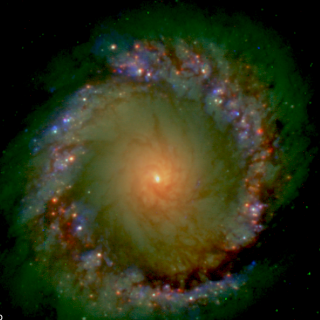Bibcode
Orienti, M.; Dallacasa, D.
Bibliographical reference
Astronomy and Astrophysics, Volume 477, Issue 3, January III 2008, pp.807-812
Advertised on:
1
2008
Journal
Citations
21
Refereed citations
18
Description
Aims:The knowledge of the properties of the youngest radio sources is
very important in order to trace the earliest phase of the evolution of
the radio emission. RXJ1459+3337, with its high
turnover frequency (~25 GHz) provides a unique opportunity to study this
class of extreme objects. Methods: High-sensitivity
multi-frequency VLA observations have been carried out to measure the
flux-density with high accuracy, while multi-frequency VLBA observations
were performed, aimed at determining the pc-scale structure. Archival
ROSAT data have been used to infer the X-ray luminosity. Results:
The comparison between our new VLA data and those available in the
literature shows a steady increment of the flux-density in the
optically-thick part of the spectrum and a decrement of the turnover
frequency. In the optically-thin regime, the source flux density has
already started to decrease. Such a variability can be explained in
terms of an adiabatically-expanding homogeneous radio component. The
frequency range spanned by our VLBA observations, together with the
resolution achieved, allows us to determine the source size and the
turnover frequency, and then to derive the magnetic field directly from
these observable quantities. The value obtained in this way is in good
agreement with that computed assuming equipartition condition. A similar
value is also obtained by comparing the radio and X-ray luminosities.
Related projects

The Central PARSEC of Galaxies using High Spatial Resolution Techniques
PARSEC is a multi-wavelength investigation of the central PARSEC of the nearest galaxies. We work on black-hole accretion and its most energetic manifestations: jets and hot spots, and on its circumnuclear environment conditions for star formation. We resort to the highest available angular resolution observations from gamma-rays to the centimetre
Almudena
Prieto Escudero